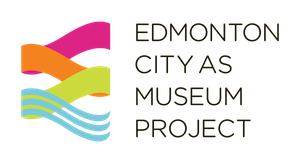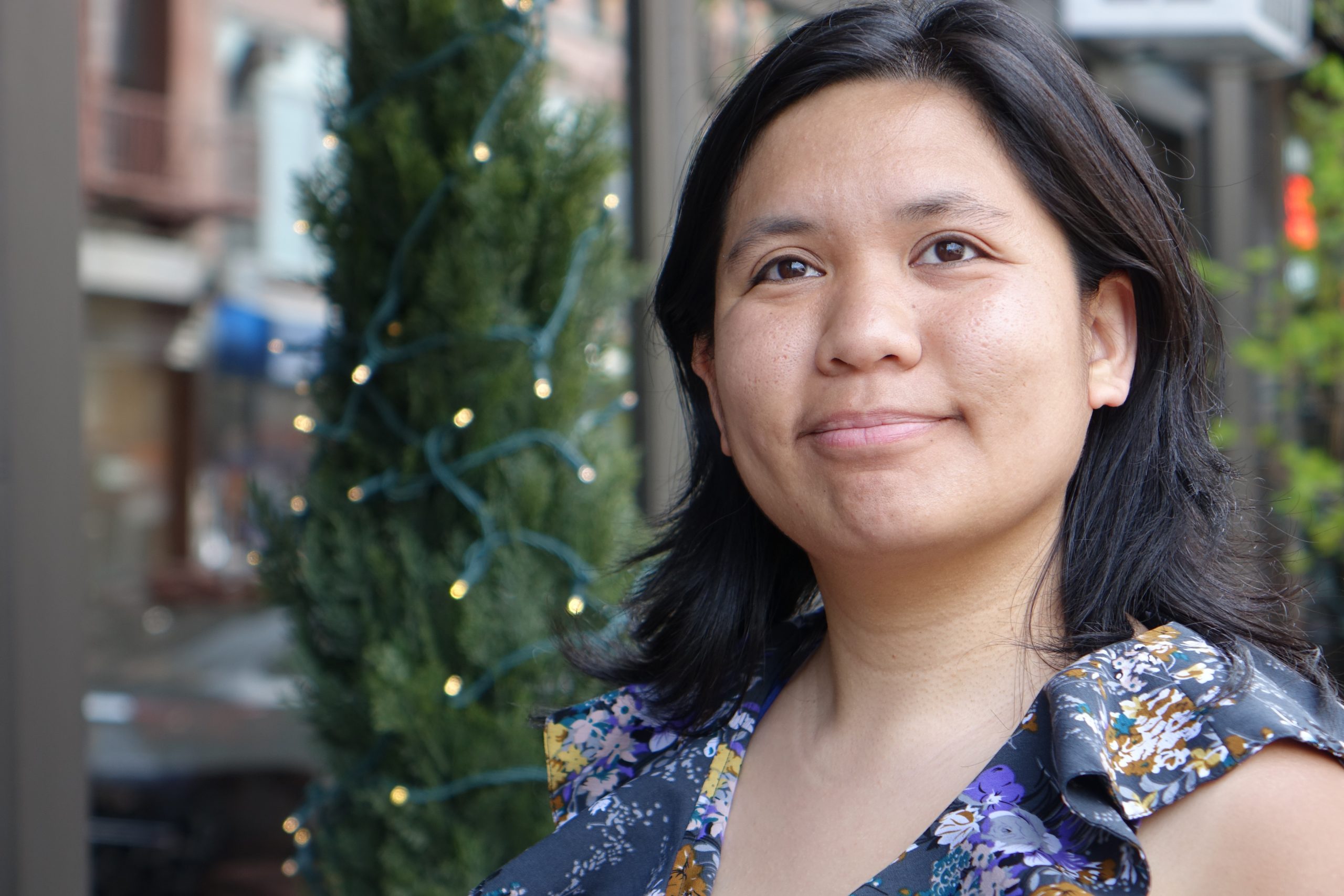Hello ECAMPers!
As the Curator of ECAMP, working with the Story Contributors is one of the best parts of my job. I love being invited into someone’s research process, watching their stories grow & change, and helping them make connections between ideas, sources, and people when I can. I am thankful to be a part of people’s journeys of understanding. I learn something new from each of the writers, and am forever humbled by the extent of what I do not know about the history of this place.
One ECAMP Story Contributors that I have had the joy of working with & learning from in 2020 is Giselle General. She is a self-described “volunteer coordinator by day, serial volunteer at night”. Giselle and her brother were sponsored from the Philippines by relatives after being orphaned at a young age. She holds a Commerce Degree from the University of Alberta School of Business and works in the nonprofit sector.
This spring, Giselle wrote an ECAMP story about the History of Filipino Businesses in Edmonton, and her second ECAMP article exploring the contributions of Teresita Pajarillo Oliva, founder of the Filipino Nurses Association of Alberta, will be released later this winter.
Many thanks to Giselle for participating in this interview and for sharing her story of becoming an ECAMP Story Contributor!
CH: How did you learn about ECAMP?
GG: I found out about ECAMP through social media, specifically Facebook. I saw some of the stories being promoted, and I thought it was a cool initiative! It made me wonder why the city does not have an actual physical museum, though I also appreciate this digital medium of sharing stories about Edmonton.
CH: What inspired you to submit an Expression of Interest/ application to be a Story Contributor?
I was reluctant to submit because most of my writing is free of charge, from my blog, as a columnist with the Alberta Filipino Journal. One day, our newspaper Publisher teased me and said, “you are in the wrong career.” He implied that I have what it takes to pursue writing opportunities with some level of compensation. I also am passionate about writing about different topics related to our city. Initially, I looked into how to write an expression of interest application because it seemed very formal to me. It turns out that this is not the case at all. Thanks to the support of the ECAMP staff, I completed the application and got approved.
CH: What has being an ECAMP Story Contributor meant to you?
GG: It is an opportunity to branch out to topics and processes I don’t typically do in my writing. I am far from a historian; I have a background in Business and working in the nonprofit sector. This type of writing has an additional weight of responsibility, as I am relaying other peoples’ experiences, common patterns, and impact in our community in the past and present. I enjoyed it tremendously.
CH: Share a story from your research process, such as a moment of celebration, a surprise, a change of direction in your research, how COVID impacted your research, or maybe a question that had to go unanswered.
GG: COVID limited my ability to travel around and talk to business owners in person, past and present. However, I am grateful to receive leads to interview those who owned businesses decades ago and that these business owners, or their family members who are still alive, agreed to be interviewed. Listening to someone talk about experiences decades ago was just a delight; the nostalgia is evident. A common theme I found is that they are happy overall that there are more businesses around that serve Filipinos across Edmonton and Alberta. The business community is also a strong network; many of the business owners I hear about have already met them through other community-based initiatives. I would have loved to probe deeper into the home-based and online-based businesses. It is a recent development I have seen over the past few years, and the momentum is building. Perhaps this means there ought to be another article in 10 years!
CH: You shared with me that, since writing your ECAMP story, Panciteria de Manila had to close its doors. Why is it important to support local businesses during COVID, and what do these places mean to Filipinos in Edmonton?
GG: The presence of businesses like Panciteria is inspirational, a glimpse of the possibility to do well in this new country we call home. Also, as I mentioned in the article, places and businesses that cater to one’s needs and preferred communication methods are essential. Local business owners give back to the community in immediate and constant ways, which is why they deserve our patronage. Now, I am speaking from a place of privilege when I say this because reality is that the price difference is a barrier to some from supporting local businesses. Large corporations have the advantage of scale, enabling them to offer products and services at a lower price. It is tricky because these challenging times are a wake-up call for many to be strict with personal spending. But if money is an issue, other ways to support local businesses is by following these local businesses on social media, sharing content and leaving kind and positive comments, speaking out to community leaders if a bylaw of policy might be hurting local businesses. And once there is extra room in the budget to be flexible, thinking of these local businesses as the first choice.
CH: Many thanks, Giselle, for being an advocate for your community, sharing your story as an ECAMP Story Contributor, and for your contributions to the ECAMP story collection.
Consider supporting a local Filipino business today!
- Manila Grill Express – Authentic Filipino Cuisine
- Mabuhay Motors – Dealership
- Jeepney JayTee food truck
- GoldenBucks Bakeshop
Are you interested in the history of this place? Do you enjoy writing, researching, or storytelling? Is there a story from our city’s past or your past in the city that you want to share? Then consider submitting your story ideas to the Edmonton City as Museum Project.
For more information on how to contribute, download the 2021 Story Contributor information package.
Take care!
– Christina Hardie, Curator of the Edmonton City as Museum Project.

